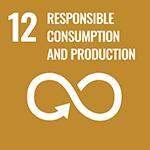Sustainable Replantation of Oil Palm by Adding Value to Oil Palm Trunk through Scientific and Technological Innovation
Principal Investigator


Prof.
School of Biological Sciences, Universiti Sains Malaysia (USM)
K. Sudesh Kumar
ODA Recipient Country
Malaysia
Research Institutions in Japan
Japan International Research Center for Agricultural Sciences (JIRCAS) / IHI Corporation /Hiroshima University / National Institute for Environmental Studies / Panasonic Corporation / NISSIN SHOJI CO., LTD.
Research Institutions in Counterpart Country
Universiti Sains Malaysia (USM) / Malaysian Palm Oil Board (MPOB) / Forest Research Institute Malaysia (FRIM) / Standard and Industrial Research Institute of Malaysia (SIRIM)
Adoption fiscal year
FY 2018
Research Period
5 Years
Overview of the Research Project
Develop technology that utilizes palm trunks to resolve oil palm plantation issues
Malaysia produces approximately 30% of the world’s palm oil. Oil palm trunks (OPT), trunks from palm trees that are felled at the end of their economic life, are left on plantations, causing issues that include the spread of soil-borne diseases, greenhouse gas emissions from decomposition, and deforestation as tropical forest is cleared to make way for new plantations. This project is conducting scientific and economic assessments of the impact of OPT abandonment, and attempts to transform OPT into a more valuable resource by developing technology for producing a range of high-value-added products, including biogas and biodegradable materials.
Sustainable plantation management and creation of new industries through OPT technology
This project is based on collaboration between industry, government, and academia in Malaysia and Japan. It aims to raise the resource value of oil palm trunks and create new industries by developing technologies that utilize OPT to produce high-value-added products. This contributes to the achievement of sustainable palm plantation management by facilitating the removal and use of felled OPT and making replantation possible within existing palm plantations.
Photo gallery

Oil palm. After growing for about 25 years, fruit bunch productivity declines, and the tree is felled.
Research Project Web site
Press Release
Links
Projects
Contact Us
Japan Science and Technology Agency (JST)
Department of International Affairs
SATREPS Group
TEL : +81-3-5214-8085
Related articles by Category
- Global-scale environmental issues
Environment / Energy
(Global-scale environmental issues)
 Kingdom of Thailand
Kingdom of Thailand
“Natural rubber seeds”, the unlimited potential hiding in natural rubber plantations
Utilization Technology of Rubber Seeds for Green Products to Mitigate Global Warming and Plastic Pollution
- Malaysia
Environment / Energy
(Global-scale environmental issues)
 Malaysia
Malaysia
Recover water, electric power, and mineral resources from palm oil mill effluent!
Development of Palm Oil Mill Effluent (POME) Treatment System for Sustainable Energy Production and Resource Recovery based on Material Innovation
- Asia
Environment / Energy
(Carbon Neutrality)
 Kingdom of Cambodia
Kingdom of Cambodia
Using water management to reduce methane emissions from rice paddies!
Development and Social Implementation of Greenhouse Gas Emission Reduction Technologies in Paddy Fields of West Tonle Sap Lake by Establishing a Large Paddy Area Water Management System
- SDGs : Goal.15
Environment / Energy
(Global-scale environmental issues)
 Republic of Peru
Republic of Peru
Solve the challenges facing the Andean-Amazon region by sustainable forest management
Establishment of Integrated Forest Management System Model for Conservation of Mountain Forest Ecosystems in the Andean-Amazon





















